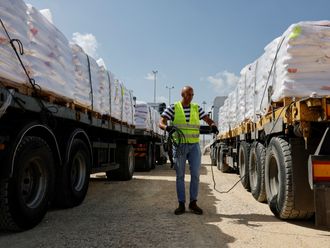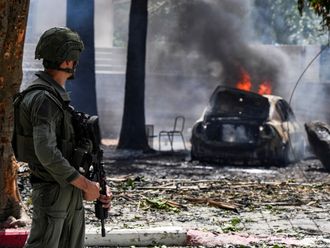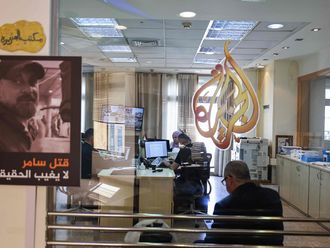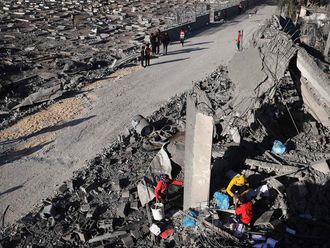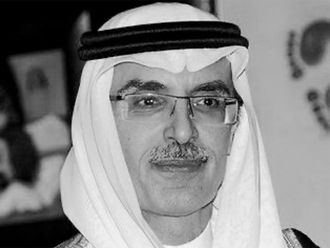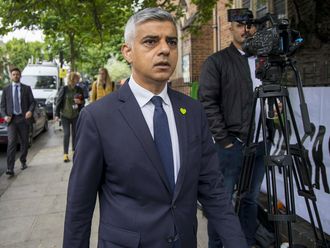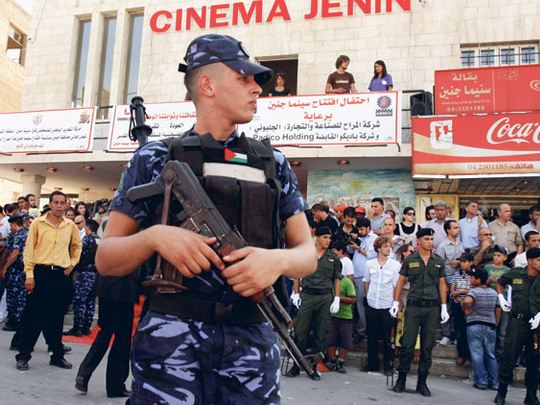
Jenin, West Bank: The red carpet had seen better days. Faded, threadbare and dotted with stains and cigarette burns, it would not have graced a Hollywood premiere. But this was Jenin, one of the most troubled cities in the West Bank over recent decades and a long way from Tinseltown. And, for once, there was something to celebrate.
The occasion was the opening of Cinema Jenin, an ambitious project to provide a centre of culture and entertainment in a place more accustomed to the farewell videos of suicide bombers than the latest action movie or romcom.
For two years a team of local Palestinians and international volunteers has laboured to build a new cinema from the dilapidated shell of the old movie house, which shut its doors 23 years ago during the first intifada.
Now its smart minimalist interior has got more than 300 original cinema seats, restored by local craftsmen.
A state-of-the-art sound system has been donated by Pink Floyd's Roger Waters. Its new roof, electrical system, 3D projection system, film school, digital library, open-air screen and cafe was paid for, in part, by the German government. And the new cinema runs on solar power.
The $1 million (Dh3.67 million) restoration was largely driven by the German filmmaker Marcus Vetter, whose award-winning documentary, Heart of Jenin. Vetter's film tells the story of Ahmad Khatib, a 12-year-old Jenin boy shot dead in 2005 by Israeli soldiers who mistook his toy gun for a real weapon. The boy's parents decided to donate his organs to Muslim and Jewish children. His mother, Abla Khatib, said at the time: "To give away his organs was a different kind of resistance. Violence against violence is worthless maybe the Israelis will think of us differently. Maybe just one Israeli will decide not to shoot."
Safe place
Inspired by the story, Vetter went to Jenin to make his film, but realised there was nowhere in the city it could be screened. He saw the cinema's restoration as a way of challenging the negative image of Jenin, as well bringing a creative space to a city in which the daily grind of living under occupation had virtually erased cultural activity.
Esmail Khatib, Ahmad's father, an enthusiastic backer of the project, was at the opening. "Cinema Jenin provides a safe place where Ahmad's friends can learn and have fun," he said. Samah Gadban, a 17-year-old from Al Beqaha in Israel who received Ahmad's heart, was on the red carpet to show, she said, "her strong connection" with Jenin.
"It's a token of appreciation from our family to come here to the heart of Jenin to celebrate the opening of the cinema," her mother added. Much of the city was reduced to rubble in an Israeli military incursion in 2002. The IDF was intent on eliminating resistance organizations, who provided suicide bombers in the second intifada from Jenin's labyrinthine refugee camp.


